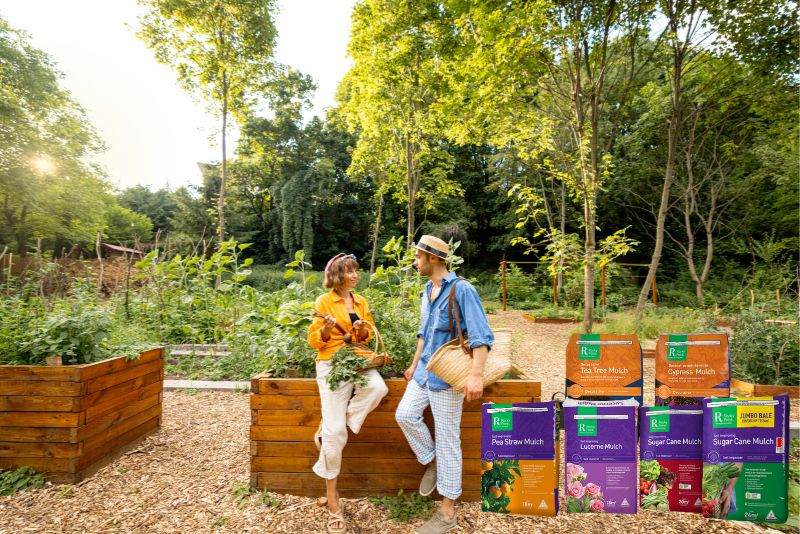How To Choose The Right Type Of Mulch For Your Garden

Mulch is more than just a landscape supply garden accessory; it’s a vital component for maintaining a healthy and vibrant garden. From water retention and weed suppression to enriching soil with organic matter, providing drainage, and creating habitats, mulch serves a plethora of essential functions. The challenge, however, lies in selecting the appropriate type for your specific gardening needs.
How To Choose The Right Mulch
1. Light Mulches for the Veggie Patch
For vegetable gardens, light mulches such as pea straw, sugar cane, lucerne, and oats are highly beneficial. These materials not only retain moisture but also contribute nutrients back into the soil, promoting a fertile environment for your veggies to thrive. However, it’s advisable to avoid using light mulches around low-hanging fruits like strawberries, as they can harbor slugs and snails, which might feast on your produce.
Native Plant Favorites: Euky and Tea-Tree Mulch
When it comes to native plants, euky mulch and tea-tree mulch stand out as top choices. These mulches mimic the natural leaf litter found in bushland, providing an ideal setting for native flora. They facilitate a natural cycle of decay and rejuvenation, akin to walking through a bushland filled with falling leaves and branches, thus nourishing the soil and supporting the ecosystem.
Leaf Mulch: The Forest Floor in Your Garden
Leaf mulch, comprised of leaves, twigs, and small branches, replicates the forest floor, making it an excellent choice for creating a bit of habitat in your garden. It’s particularly beneficial for attracting and supporting lizards and small invertebrates, making it a versatile all-rounder that enhances the ecological diversity of your outdoor space.
Heavier Mulches for Water Retention and Weed Suppression
For areas around trees or to delineate different sections of the garden, heavier mulches derived from chipped pruned branches can be very effective. These chunkier mulches are excellent for retaining water, suppressing weeds, and even creating paths due to their aesthetic appeal and durability. However, they’re less suited for garden beds as they take longer to decompose. Hoop Pine Mulch, Forrest Mulch, Cypress Mulch and Pine Bark Mulch
Hardwood Mulch for Longevity
For garden elements intended to last, hardwood mulch is the go-to option. Produced by chipping down hard timbers, this type of mulch is incredibly durable, offering prolonged water retention and slowly releasing nutrients over time. While it’s perfect for paths and long-term projects, its slow decomposition rate makes it less ideal for regular garden beds.
The diversity of mulches available means there’s something for every garden and every gardener’s needs. Whether your focus is on vegetable production, native plant support, creating habitats, or simply aesthetic garden paths, the right mulch can make all the difference. By understanding the specific benefits and applications of each mulch type, you can make an informed choice that will enrich your garden and support its flourishing ecosystem.
Contact the team at Wellers Hill Hardware and Landscape Supplies in Brisbane today for more information or a quote on 07 3848 1682.

